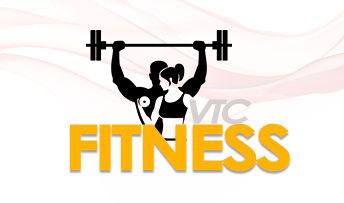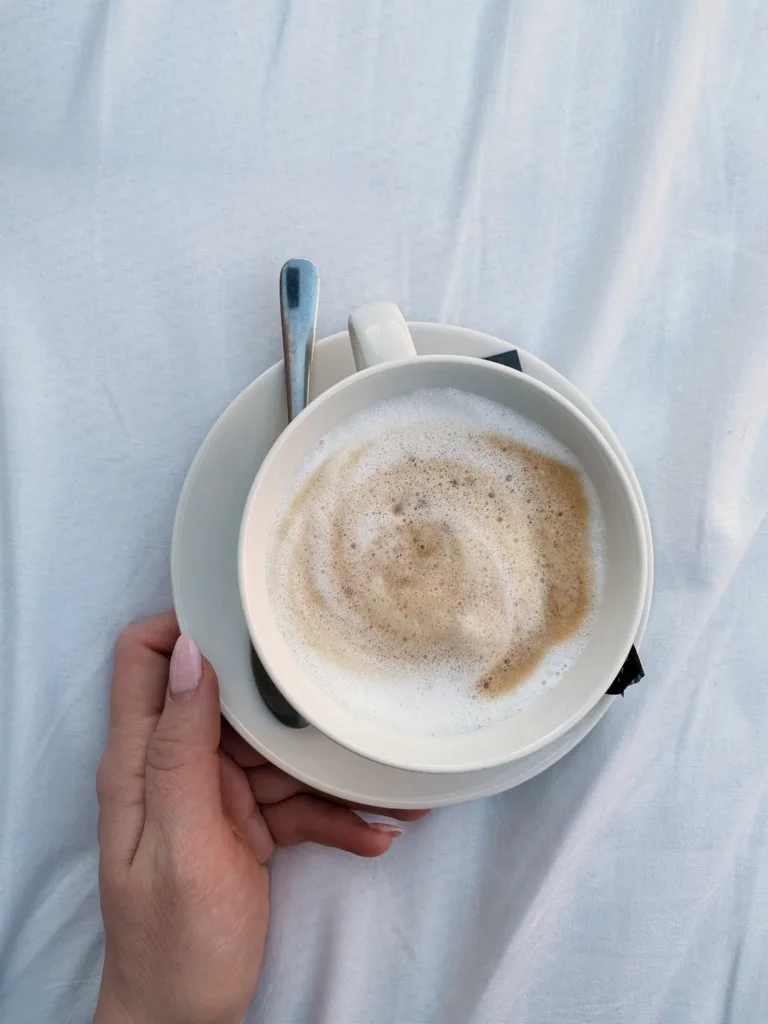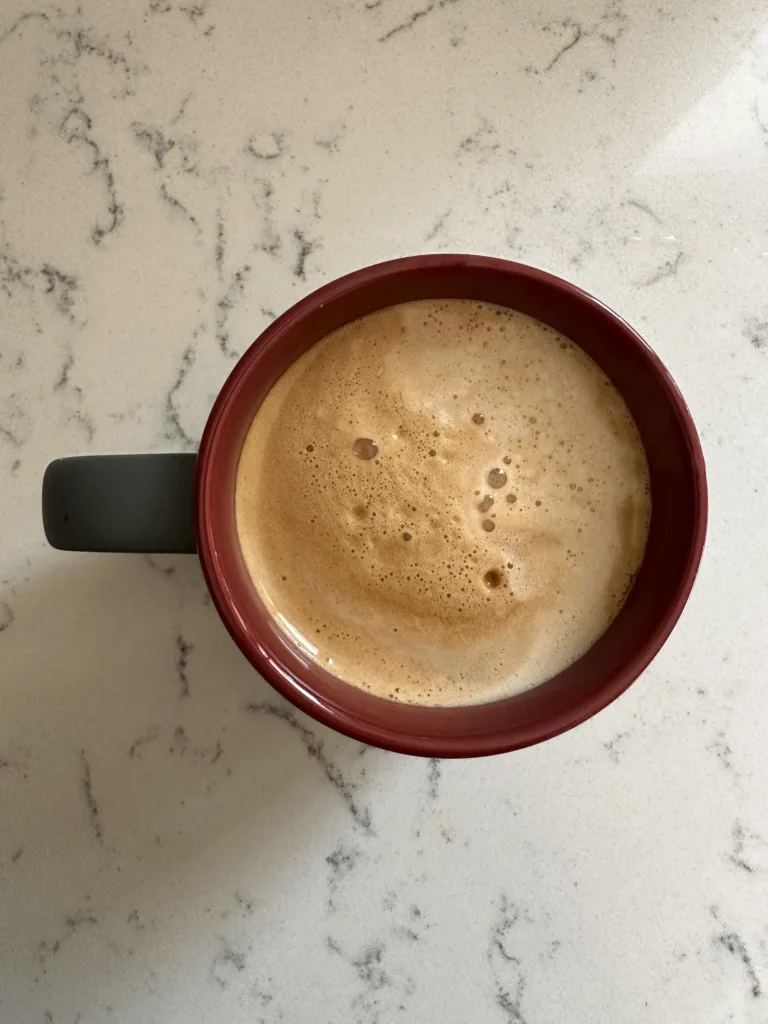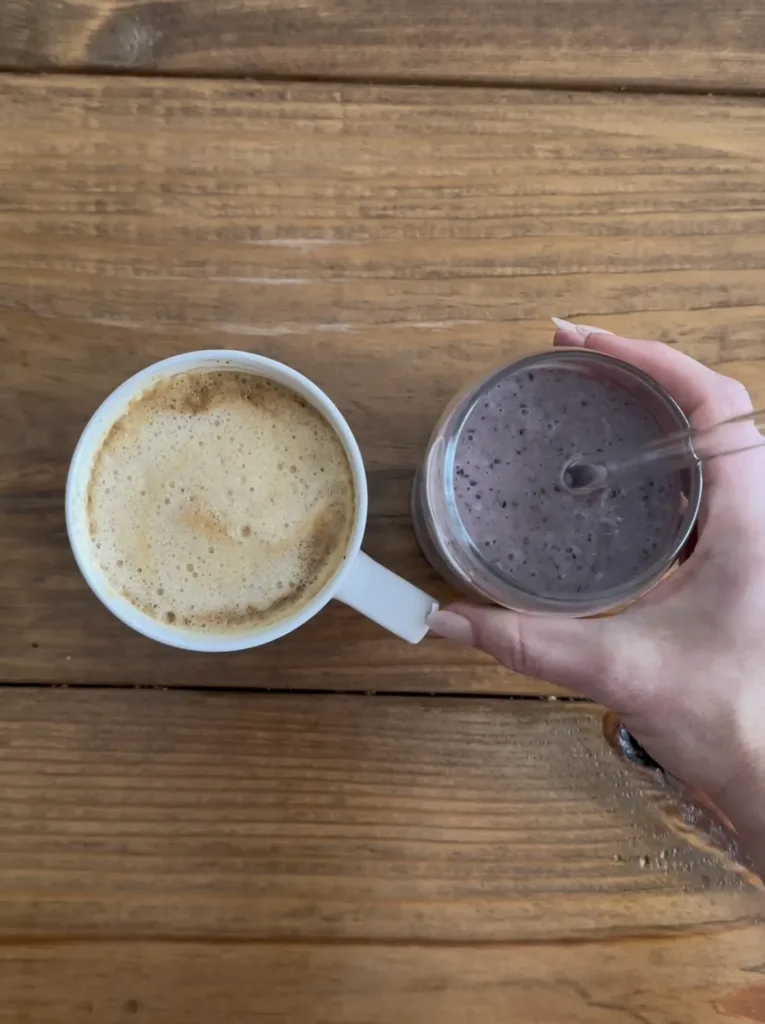[ad_1]
One thing about me is that I drink a cup of coffee before I do anything else in the morning. And sometimes…I’m drinking it on an empty stomach.
Don’t come for me! I never claimed to be perfect. Besides, I’m not doing it on purpose – I am DEFINITELY a breakfast girly. I’ve just fallen into a habit of drinking coffee while I work before my kids wake up (read: while it’s quiet).
I’ve seen Instagram posts and TikToks denouncing coffee without food, claiming I’ll ruin my hormones, derail my blood sugar, and spiral into anxiety. But is drinking coffee on an empty stomach actually bad? Let’s find out.
Coffee and digestion
We all know the joke about running to the bathroom after finishing a morning cup of coffee. Not everyone experiences something quite THAT dramatic, but coffee can have a serious impact on your digestive system.
Coffee stimulates stomach acid and bile production and gets the intestines moving. The increase in stomach acid could aggravate symptoms for people with GERD. Some researchers hypothesize that drinking coffee regularly lowers the pressure of the sphincter in your esophagus, causing reflux.
Fun fact: Coffee is so good at stimulating the intestines that researchers call it a low-cost method to prevent intestinal paralysis following abdominal surgery.
Coffee and anxiety
Sometimes I feel like I’m literally about to lift off after I drink coffee. It’s not a feeling of productive energy (although that would be much more ideal). It’s anxious energy. So at least for me personally, this claim seems to be true.
Caffeine is a stimulant, which means it increases activity in the nervous system and increases the circulation of chemicals like cortisol, a stress hormone.
While it has some positive effects like improved cognitive function, it may also increase symptoms of anxiety for people diagnosed with anxiety and panic disorder. Caffeine binds to certain adenosine receptors that help regulate neurotransmitters like serotonin and dopamine, which could contribute to anxiety symptoms.
Hormones
Is drinking coffee on an empty stomach wrecking your hormones? What does that even mean?
Some experts say that caffeine could affect estrogen and progesterone levels, especially for those diagnosed with hormonal disorders such as PCOS. An imbalance of these hormones could cause heavy periods, skin issues, fatigue, and more.
Caffeine also increases cortisol circulation, which could increase long-term inflammation. More research is needed to say for sure if coffee causes a long-term cortisol increase, or any related effects. One randomized trial found that caffeine affects cortisol differently between men and women (and women are far less researched) and that caffeine did not increase cortisol as much in the absence of stress.
While avoiding coffee on an empty stomach may help slow the absorption of caffeine, it may be more important to consider how much caffeine you’re ingesting per day.
Not all coffee is the same
Remember, there are a lot of different types of coffee: Drip, French press, instant, espresso, etc. An 8-oz cup of traditional brewed coffee has an average of 95mg caffeine, while a 7.7 oz coffee pod in my Nespresso has closer to 200mg (explains the feeling of lifting off when I drink it).
On the same note, drinking an Americano with no milk or sweetener may affect you differently than a fully sweetened PSL made with whole milk.
If you’re noticing negative side effects after drinking coffee, start paying attention to the type you drink. It might be easier than you think to alter what you’re drinking or simply add to it instead of giving it up completely.
It might help to eat (or drink) something
If you just don’t feel great after drinking coffee on an empty stomach, you’re feeling anxious, experiencing insomnia, or you notice your energy levels dropping mid-morning, there are a few things you can try. Of course, you could try half-caff or even forgo coffee altogether. But if you’re not ready to part with your morning cup, you can try pairing it with food.
Try eating breakfast before you drink coffee
You might notice a real difference in how you feel by simply eating breakfast before you drink coffee. Or, at least eat while you sip. Here are some light, easy ideas for what to eat.
Eating before you finish a cup of coffee may also help you pack in more nutrition for the day. For many of us, caffeine suppresses the appetite and as a result, you may sacrifice a nutritious, protein-rich breakfast by drinking coffee first. This may seem like NBD, but skipping an entire meal can have a major impact on your daily intake. So keep that in mind!
Easy add-ins for your morning coffee
If eating a full breakfast is just not happening and you’re noticing increased anxiety or an energy crash not long after your coffee, it might be worth experimenting with easy add-ins to slow the absorption of caffeine.
Here are some ideas to give your coffee a little “oomph” if you’re skipping breakfast. These mix-ins may help curb some digestive side effects of coffee, avoid blood sugar crashes, and (my fav) provide a little extra nutrition.
- Milk – Depending on the type, this can add protein and fat to slow caffeine absorption and keep you full.
- Protein – Add a scoop of powder or use your favorite premade shake as a yummy creamer.
- Collagen – Some people prefer to use collage peptides instead of protein powder! Collagen is often flavorless and undetectable in coffee.
- Coconut oil – Not my favorite, but one way to add healthy fats into your morning.
- Turn your coffee into a smoothie – If you’re into cold coffee, blend it with a frozen banana and some protein for a creamy, tasty shake.
Is it bad to drink coffee on an empty stomach?
I’m going to give you everyone’s favorite answer: It depends!
Some people may be more sensitive to the effects of coffee on an empty stomach. If you start your day with coffee and notice that you don’t feel great, try adding some food and see how you feel! And as always, work with your healthcare provider and/or dietitian to figure out what’s best for you.

[ad_2]
Source link













